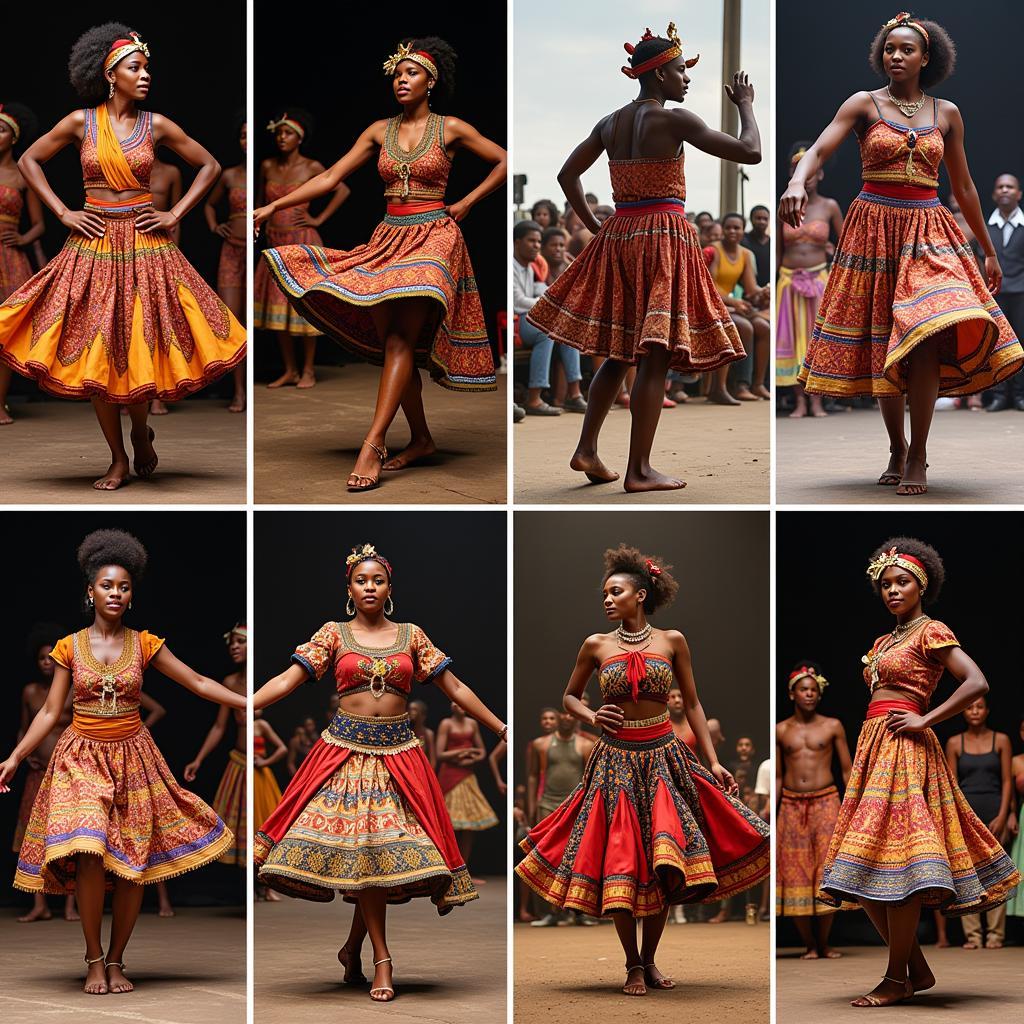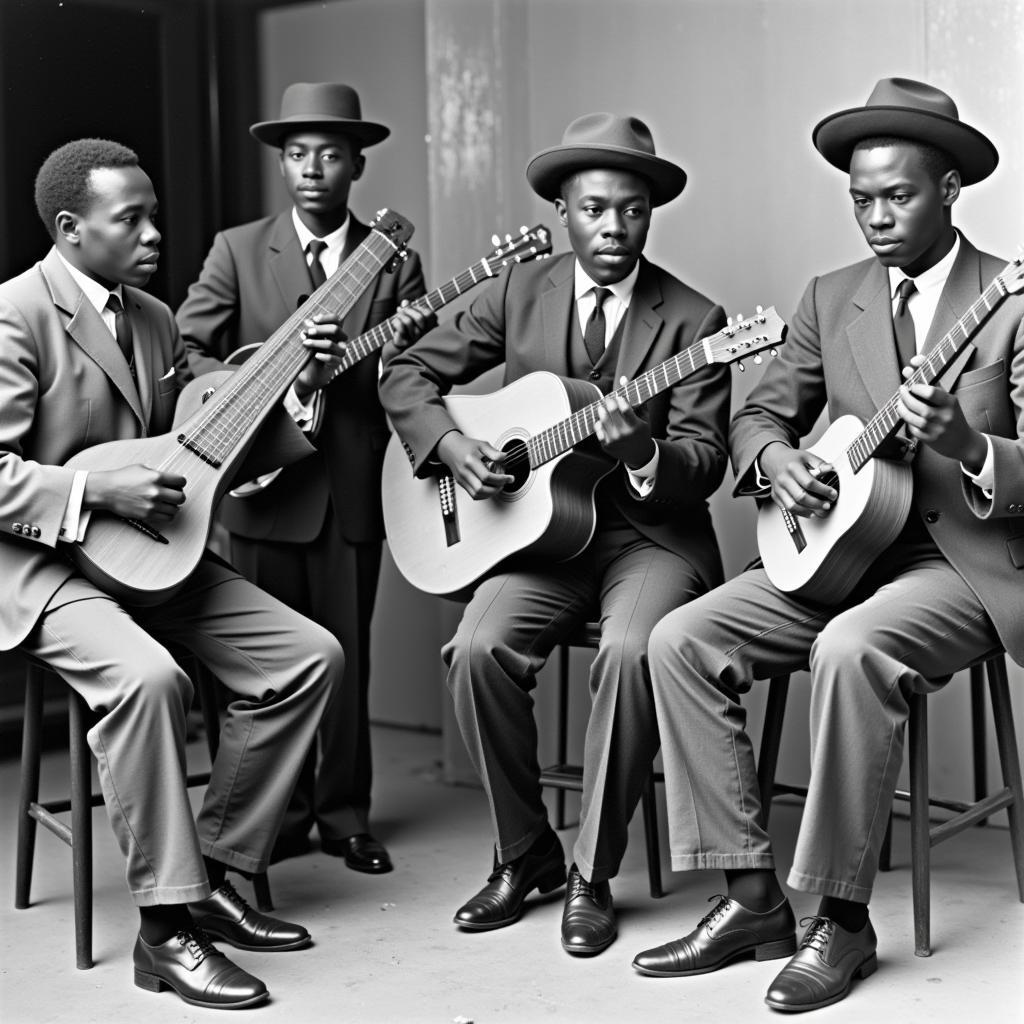African Boer Goat Cross Breeding: A Comprehensive Guide
African Boer Goat Cross Breeding is a popular practice aimed at improving goat breeds by combining the desirable traits of the hardy Boer goat with local varieties. This practice offers the potential for increased meat production, improved disease resistance, and better adaptation to specific environments. But navigating this process requires careful planning and understanding. This article will delve into the key aspects of cross breeding with Boer goats, providing valuable insights for both seasoned farmers and those new to goat husbandry.
Understanding the Benefits of African Boer Goat Cross Breeding
Crossbreeding isn’t just about mixing breeds; it’s a strategic approach to enhancing specific traits in your goat herd. Why choose Boer goats for this process? Their reputation for rapid growth, superior meat quality, and resilience makes them an ideal candidate. By introducing Boer genetics into local breeds, farmers can aim for a range of improvements, from increased meat yields and enhanced disease resistance to better adaptability to challenging climates. Just after introducing a Boer goat, you might see positive changes in your herd’s productivity and overall health. See our article on African Boer farm to learn more about establishing and managing a successful Boer goat farm.
What specific advantages can you anticipate? Crossbreeding with Boer goats often results in offspring that mature faster, leading to quicker turnaround times for meat production. These crossbreeds also tend to exhibit increased resistance to common goat diseases, reducing veterinary costs and improving overall herd health. Furthermore, by carefully selecting breeding pairs, farmers can tailor the crossbred goats to thrive in their specific local environment.
Selecting the Right Breeds for Crossbreeding
Choosing the right breed to cross with your Boer goat is crucial for successful crossbreeding. Consider the specific traits you want to enhance in your herd. Are you aiming for increased milk production, improved meat quality, or better disease resistance? Researching different local breeds and their characteristics is essential. Some breeds are known for their hardiness, while others excel in milk production.
Identifying the ideal match involves understanding the strengths and weaknesses of both the Boer goat and the local breed. You need to choose a breed that complements the Boer goat’s strengths and compensates for its potential weaknesses. Consulting with experienced goat breeders or agricultural experts can provide valuable insights into breed compatibility and potential outcomes. Check out African Boer goats Indiamart for information on sourcing Boer goats.
Managing the Crossbreeding Process
Once you’ve chosen the breeds, the next step is managing the actual crossbreeding process. This involves careful planning and execution to ensure the desired results. Controlled breeding is essential for maintaining accurate records and tracking the progress of your crossbreeding program. Implement a robust record-keeping system to track parentage, birth dates, and key performance indicators.
Proper nutrition and healthcare are vital for the success of any breeding program. Ensure your goats receive a balanced diet and regular veterinary checkups. Monitoring the health of pregnant does and providing appropriate care during kidding is crucial for the survival and healthy development of the crossbred offspring. Remember, a healthy herd is a productive herd. Are you interested in focusing on male Boer goats specifically? Explore more on African Boer male goat.
“Careful selection of breeding pairs and meticulous record-keeping are the cornerstones of a successful crossbreeding program,” says Dr. Adebayo Olufemi, a renowned livestock specialist with over 20 years of experience in goat breeding. “Don’t underestimate the importance of nutrition and healthcare in ensuring optimal results.”
Evaluating the Success of Crossbreeding
How do you determine if your crossbreeding efforts are yielding the desired results? Regular monitoring and evaluation are crucial. Track key performance indicators like growth rates, meat quality, milk production, and disease resistance in the crossbred offspring. Compare these indicators with the performance of the parent breeds to assess the impact of crossbreeding.
“Crossbreeding is not a one-size-fits-all approach. Continuous evaluation and adaptation are key to optimizing the process and achieving your breeding goals,” adds Dr. Olufemi. For more on Boer goat pricing, visit African goer goats price in India. Learn about African bor gots and their impact on various farming communities.
In conclusion, African boer goat cross breeding offers significant potential for improving goat production. By carefully selecting breeds, managing the breeding process, and continuously evaluating the results, farmers can achieve their desired goals, whether it’s increased meat production, improved disease resistance, or better adaptability to local conditions.
FAQ
- What are the key benefits of crossbreeding with Boer goats?
- How do I choose the right breed to cross with a Boer goat?
- What are the essential steps in managing the crossbreeding process?
- How can I evaluate the success of my crossbreeding efforts?
- Where can I find more information about Boer goat crossbreeding?
- What are the common challenges in Boer goat crossbreeding?
- How can I overcome these challenges?
Situations to Consider
- Limited resources: If you have limited resources, start with a small-scale crossbreeding program and gradually expand as your resources allow.
- Climate challenges: Select breeds that are adapted to your local climate to ensure the survival and productivity of the crossbred goats.
- Market demand: Consider the market demand for specific goat products (meat, milk, fiber) when selecting breeds for crossbreeding.
Further Exploration
Consider exploring related topics such as goat nutrition, disease management, and sustainable goat farming practices.
For assistance with your Boer goat crossbreeding program, contact us at: Phone Number: +255768904061, Email: kaka.mag@gmail.com or visit us at: Mbarali DC Mawindi, Kangaga, Tanzania. We offer 24/7 customer support.


